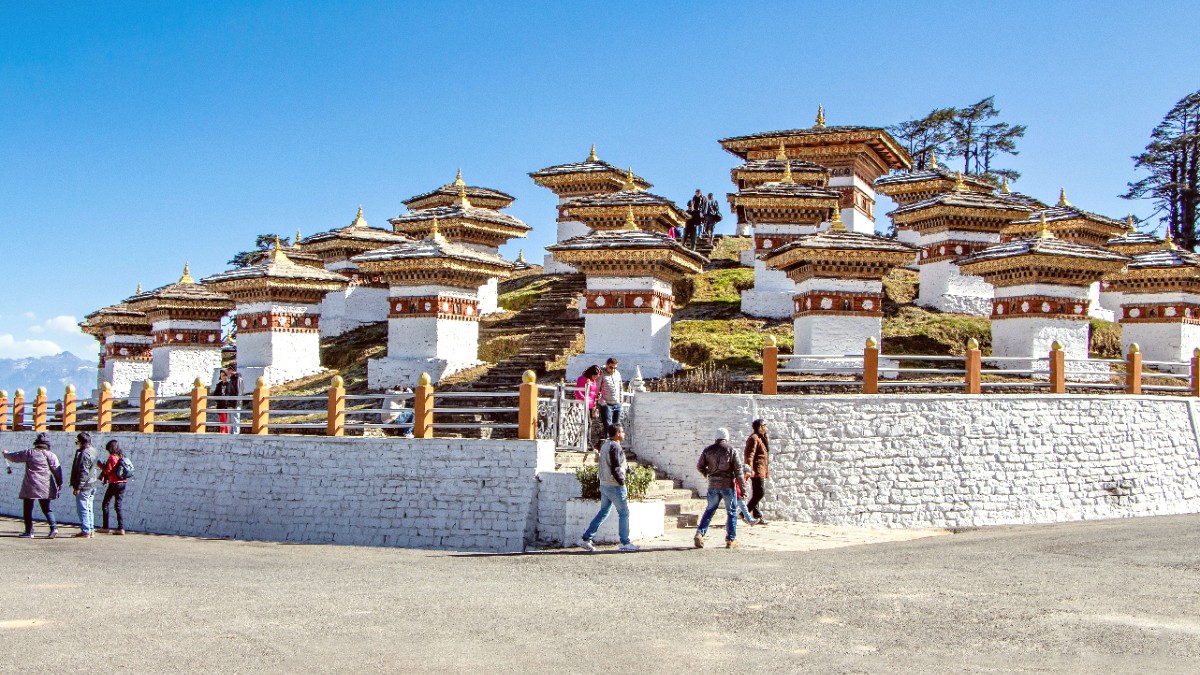
Bhutan
Bhutan has two main mobile network providers: Bhutan Telecom (B-Mobile) and TashiCell. Both offer good coverage, especially in populated areas.
Wi-Fi is available in most hotels and guesthouses in Thimphu, often free. Connectivity speed varies but typically supports basic browsing.
The General Post Office in Thimphu handles full postal services, including postcards and international parcels.
Dzongkha is Bhutan's national language. English is widely spoken by those in tourism, educated youth, and government officials.
Consider downloading offline maps and language packs for your phone before you travel. This gives you access even without an internet connection.
Operate Monday to Friday, generally 9 AM to 5 PM in summer (March-October) and 9 AM to 4 PM in winter (November-February).
Most shops open around 9 AM or 10 AM and close by 8 PM. Some clothing/textile shops close on Tuesdays.
Vary, but generally open from 10 AM or 11 AM until 9 PM or 10 PM for dinner service.
Bhutan observes numerous religious and national holidays. During these, government offices, banks, and some businesses may be closed or have limited schedules.
Thimphu sees very few seasonal closures. It remains active year-round.
Always check the specific opening hours of any attraction you plan to visit, as they sometimes change. Your tour guide readily confirms these details.
For seamless travel, consider acquiring Priority Pass for lounge access and Compensair for flight delay compensation services.
Bhutan is a deeply traditional and spiritual society.
A simple "Kuzu Zangpo La" (hello) accompanied by a slight bow is a polite and widely appreciated greeting.
When visiting dzongs, monasteries, temples, or any religious place, modest dress is required. Shoulders and knees must be covered.
Always ask for permission before photographing people, especially monks, nuns, or elderly individuals. Respect their decision if they decline.
There are certain topics and actions to avoid out of cultural respect. These relate mostly to reverence and public conduct.
Always circumambulate chortens, monasteries, and other religious structures in a clockwise direction. This is a common form of worship and a gesture of respect.
Travelers with mobility challenges or other special needs may find infrastructure in Thimphu limited compared to more developed nations.
Thimphu's infrastructure, including pavements, public buildings, and public transport, is generally not designed for wheelchair accessibility.
Some major attractions may feature ramps or provide easier access to certain areas, though older sites remain challenging.
No specific widespread services or infrastructure cater to travelers with visual or hearing impairments in Bhutan.
The most effective approach for travelers with accessibility needs is to communicate their specific requirements and limitations to their Bhutanese tour operator well in advance.